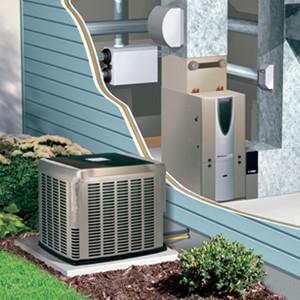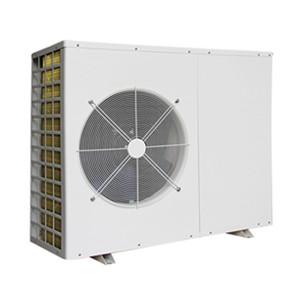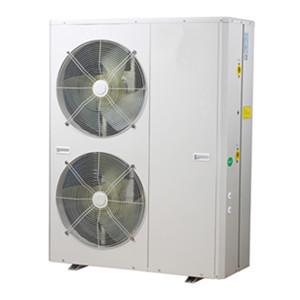Air Source Heat Pumps Disadvantages
Although the media and many manufacturers have been celebrating the success of energy-efficient air source heat pumps, there are still considerable shortcomings with air source heat pumps.
Before installing, make sure you understand exactly what an air source heat pump does and some of the biggest disadvantages that come with it.
About air source heat pumps
An air source heat pump is a heating device that absorbs heat from the outdoors
They work by using fans and heat exchangers. Using electricity, a fan blows outdoor air through a heat exchanger, which absorbs and compresses the heat. This heat is then transferred directly to the water flowing through the central heating system.
In order to operate, an air source heat pump requires an outdoor unit with a fan to pull in air, and an indoor unit to connect it to your heating system.
But are air source heat pumps any good? Well, even with government funding, the upfront costs are high, and at current gas costs, running a gas heater is still cheaper than using an air pump system.
However, in terms of energy efficiency, these heat pumps are extremely efficient and can significantly reduce a home's carbon footprint.
How air source heat pumps save energy (and money)
An electric heater uses 1 unit of electrical energy to produce 1 unit of heat. For example, it uses 3kWh of electricity and emits 3kWh of heat.
An air source heat pump still uses electricity to run, but instead of using electricity to generate heat, it uses electricity to draw air in from the environment. So while it may use 3kWh like an electric heater, its output is 10kWh.
Dividing the heat output by the electrical input yields a number called the coefficient of performance (CoP). The higher the CoP, the higher the efficiency. Don’t worry – you can find this number on the energy label, along with the Seasonal CoP (SCoP) which calculates average efficiency over summer and winter.
Most CoPs are between 3 and 5 for a good unit.
If the average household upgrades its existing electric heating system, the increased efficiency could save between £890 and £1,500 a year in energy costs.

Advantages and Disadvantages of Air Source Heat Pumps
Air source heat pumps have clear advantages and disadvantages, but not all are immediately obvious
Air source heat pump reviews are rife with complaints about noise and installation errors... none of which are fake!
But there are advantages, especially if you care about the environment.
Disadvantages of air source heat pumps
Air source heat pumps have obvious disadvantages, where winters are moderately cold and summers get increasingly hot. Our homes also tend to be built close together, so your neighbors may need to put up with these disadvantages too!
1. Cost
Air source heat pumps currently cost between £7,000 and £13,000, depending on the model and the professional you hire to install it.
To qualify for an air source heat pump grant, you will need to use an installer who is Microgeneration Certification Scheme (MCS) qualified. This ensures you can get up to £5,000 of funding from the government to help pay for a new heating system.
Ongoing heating costs with an air source heat pump will be higher in winter and lower in summer – this applies to almost any home where the heating is turned off during the warmer months.
In September, the running costs of a 1-bedroom apartment were estimated at around £360 per year. For a large detached house, the annual cost is estimated to be over £1,100. Obviously, energy prices are still rising and these numbers will vary based on other factors such as insulation.
The bottom line is: heat pumps are expensive upfront, and their money-saving benefits are only realized in the long term. Homes currently heated by gas boilers will notice that running costs can be more expensive!
2. Noise
Domestic air source heat pumps can be noisy. With the fan running 24/7, the unit will buzz, vibrate and hum in your garden. The noise from an air source heat pump can disturb wildlife, pets, and the residents of your home, not to mention your neighbors.
This is a huge disadvantage.
When installed correctly, tightly sealed and equipped with anti-vibration feet, noise should be minimal, but still unavoidable. Improper installation can make the noise worse!
Before inviting an installer to inspect your home, carefully consider whether you and your neighbors can handle the noise.
3. Size and Space
These devices are bulky and take up quite a bit of space. Internally you might be able to fit the internal unit into your existing boiler cabinet... but this may not be feasible.
For a bulky washing machine-sized unit that needs to be hung on an exterior wall, you may need to readjust your interior design to make it work. This is another cost to consider!
While we're on the subject of interior design and installation, you may also need a water cylinder if your current heating system doesn't use one.
Best of all, not all radiators are compatible!
This size, space and incompatibility issue is huge. That's why we recommend talking to an installer or even having them inspect your home - they'll be able to tell you where it will be installed and whether your current pipes are compatible.
Even with a £5,000 government grant, the cost of redecorating a home can still be high.
4. Low efficiency in winter
So far our air source heat pump problems have all been minimized with government funding, proper installation and a little luck with the current plumbing.
But one thing we can’t avoid is the inefficiency of air source heat pumps in the winter. Although capable of operating in freezing temperatures outside, efficiency decreases as temperatures rise.
This means that when you need your heating the most, it will also be the most expensive.
5. Long-term issues, maintenance and updates
Current estimates suggest that air source heat pumps require maintenance only once a year (at a cost of around £150) and can last between 15 and 20 years.
But technology is constantly changing, and who’s to say that silent, small air-source heat pump models won’t be launched in the next five years or so?
Like any equipment, air source heat pumps require annual maintenance and problems can arise, from clogged fans to burst ducts. Installing a device with the belief that you won't need to spend another penny in 15 to 20 years is a recipe for great disappointment.
Advantages of air source heat pumps
The advantages of air source heat pumps are probably what attracts you in the first place. If you're confident you can overcome many of these disadvantages, you can enjoy these advantages
1. The heating system provides continuous warmth rather than hot and cold periods.
2. Reduce electricity usage and thus lower energy bills
3. Environmentally friendly heating (as much as possible)
4. Durable heating system that won’t need to be replaced for decades
Contact us
If you are considering installing an air source heat pump, please contact us. Our heat pump experts will give you the best advice and the best unit price.





